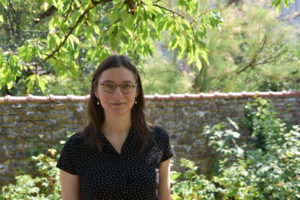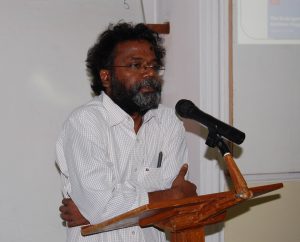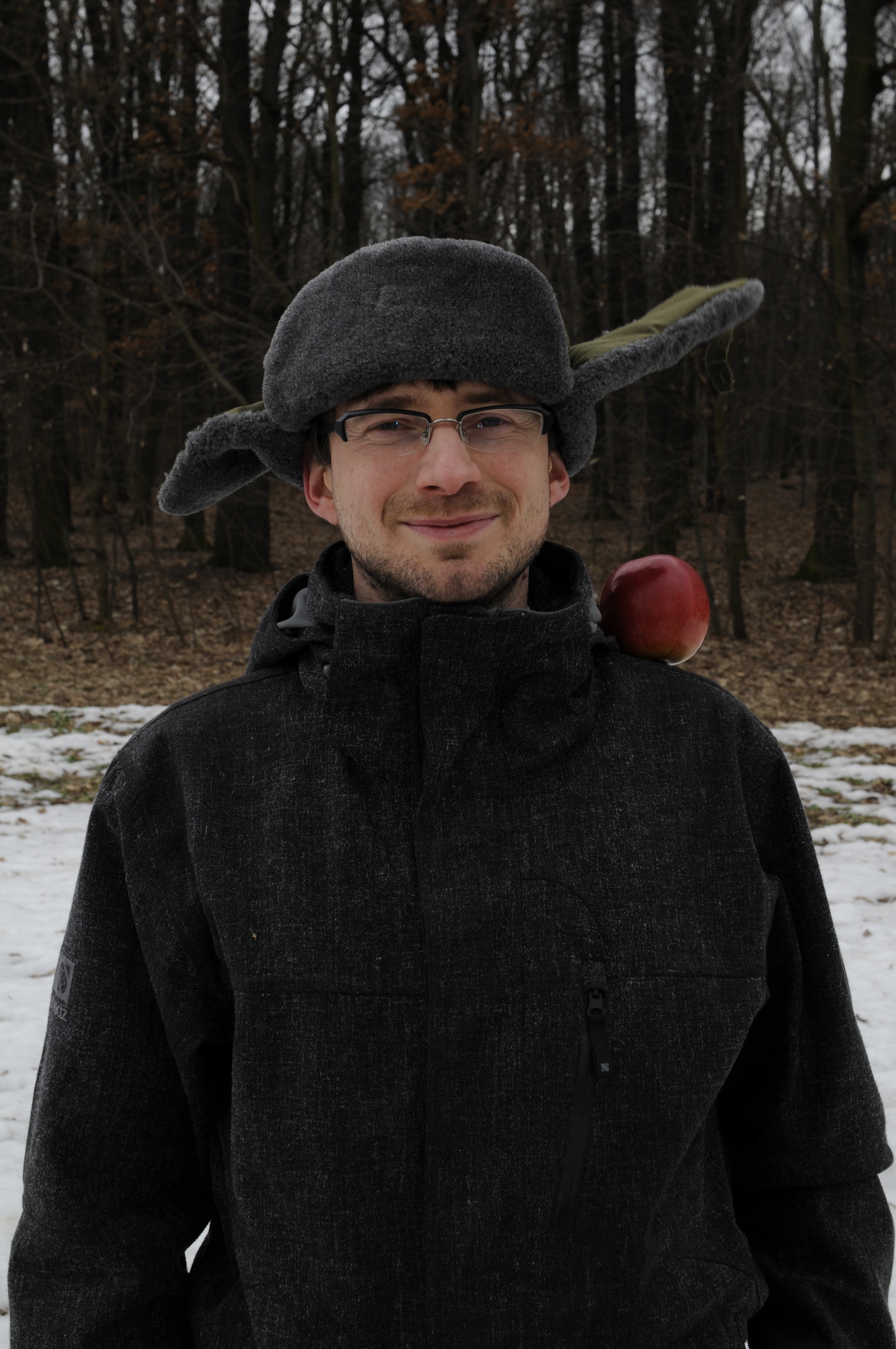 Virginie Vaté is an anthropologist and a research fellow at the Centre National de la Recherche Scientifique (CNRS), member of the GSRL (Groupe “Sociétés, Religions, Laïcités, UMR 8582). From February 2018 to August 2020, she was on mobility at CEFRES, participating with Ludek Brož, from the Czech Academy of Sciences, in the TANDEM 1 project entitled “Bewildering Boar: Changing Cosmopolitics of the Hunt in Europe and Beyond”. Virginie Vaté is currently an associate researcher at CEFRES.
Virginie Vaté is an anthropologist and a research fellow at the Centre National de la Recherche Scientifique (CNRS), member of the GSRL (Groupe “Sociétés, Religions, Laïcités, UMR 8582). From February 2018 to August 2020, she was on mobility at CEFRES, participating with Ludek Brož, from the Czech Academy of Sciences, in the TANDEM 1 project entitled “Bewildering Boar: Changing Cosmopolitics of the Hunt in Europe and Beyond”. Virginie Vaté is currently an associate researcher at CEFRES.
Virginie Vaté defended her thesis in 2003 at the Department of Ethnology and Comparative Sociology of the University of Paris Nanterre. In 2003 and from 2004 to 2007, she was a researcher at the Max Planck Institute for Social Anthropology in Halle, Germany, where she remained from 2012 to 2019. In 2004, she was a post-doctoral fellow at the CIERA (Centre Interuniversitaire d’Etudes et de Recherches Autochtones) of the Université Laval-Québec (Canada) thanks to the support of a grant from the Fyssen Foundation. In 2009, she received the bronze medal of the CNRS. From 2012 to 2016, she sat on the National Committee as an elected member in section 38. In 2017, she was appointed French representative to the Social and Human Sciences Working Group (SHWG) of the International Arctic Science Committee (IASC).
She has participated in numerous national and international research projects. She is currently a member of the ERC BOAR (2020-2026) “Veterinarization of Europe? Hunting for Wild Boar Futures in the time of African Swine Fever” (P.I.: L. Brož, https://www.wildboar.cz/), following the TANDEM 1 project. She is also responsible for the project “Herman of Alaska. Un saint au coeur de multiples revendications” (HERMAN, 2020-), supported by the French Polar Institute Paul-Emile Victor (IPEV) and carried out in collaboration with Marie-Amélie Salabelle. This project follows the “Orthodox Christianity among Indigenous People of Alaska and Chukotka” (OCIP, 2015-2018) programme, also supported by the IPEV. She also participated in the project “Marking space with religion: a comparative study of the presence of the Russian Orthodox Church in Russia and France” (2019-2021), directed by Detelina Tocheva and Jeanna Kormina.
Virginie Vaté has devoted much of her research to the exploration of the religious in the Bering Strait region (in Chukotka, Russia and Alaska, USA). In her thesis and in several publications, she addressed the themes of gender and the relationship to ‘nature’ by analysing the rituals of the Chukchi reindeer herders and marine mammal hunters. Subsequently, her research focused on the conversion to different forms of Protestantism in Chukotka and how Christianity may have served as a link between the indigenous people of Chukotka and Alaska. More recently, the OCIP project aimed to analyse the relationship of Alaskan and Chukotka Natives to Orthodox Christianity from a comparative perspective. The HERMAN project continues and develops one of the strands of the OCIP project: it proposes a study of how some Orthodox actors at different scales (local, national, transnational) claim the heritage of St. Herman of Alaska, a central figure in Alaskan and American Orthodox Christianity. V. Vaté has conducted fieldwork in Chukotka (Anadyr, Providenia and Yultin regions), Alaska (Nome, St. Lawrence Island, Kodiak) and, more recently, in France (especially in the Grand Est) in the framework of the ERC BOAR. This project led V. Vaté to take a new interest in the theme of human-animal relations, extending her questioning of the representations of the wild and the domestic initiated in Chukotka. She analyses how certain current controversies surrounding human-boar relations reflect the diversity of perspectives on the place that so-called “wild” animals should occupy in our societies today.
CV
Diplomas
Doctorate in Ethnology from the University of Paris X Nanterre (2003) ;
D.E.A. in Ethnology and Comparative Sociology (1996) ;
Master’s degree in Ethnology and Comparative Sociology (1995);
Licence Langues et Civilisations Étrangères (LCE) Russe (1993) ;
DEUG in Foreign Languages and Civilisations (LCE) English and Russian (1991).
Selected publications, as of 2012
Editing of a special issue of a peer-reviewed journal:
Dmitriy Oparin & Virginie Vaté (eds), 2021 (publication in 2022), editing a special issue of the Canadian journal Etudes Inuit Studies, 45 (1-2), Chukotka: understanding the past, contemporary practices and perceptions of the present, 571 pages.
https://www.etudes-inuit-studies.ulaval.ca/fr/numero/1490
https://www.erudit.org/fr/revues/etudinuit/2021-v45-n1-2-etudinuit07097/
Refereed book editors:
David Anderson, Rob Wishart & Virginie Vaté (eds), 2013 [and reissued in paperback format in 2015], About the Hearth: Perspectives on the Home, Hearth and Household in the Circumpolar North, New York & Oxford, Berghahn, 324 pp.
Articles in peer-reviewed journals:
2021 (out 2022) (with D. Oparin), Introduction, In: Inuit Studies, 45 (1-2), Chukotka: understanding the past, contemporary practices and perceptions of the present, pp. 9-35 (in French), pp. 37-61 (in English).
2021 (released in 2022), “‘When the roots of the willows start to thaw, people come back to life…’. Relation to plants among the reindeer-herding Chukchi, In: V. Vaté, D. Oparin (eds), Inuit Studies, 45 (1-2), Chukotka: understanding the past, contemporary practices and perceptions of the present, pp. 439-478.
2021 (out 2022) (with John Eidson), “The anthropology of Ontology in Siberia – a Critical Review”, In: Anthropologica (Journal of Canadian Anthropological Association), 63 (2), Thematic section: “The ‘Ontological Turn’ in Russian Anthropology”, 27 pp.
2021 “Vozvrashenie k chukotskim duxam / Revisiting Chukchi spirits”, Sibirskie istoricheskie issledovaniia / Siberian Historical Research, 4, pp. 55-75.
2018 (with E. Davydova), “Pishsha, èmotsii i sotsial’nye otnosheniia u Amguèmskix Chukchei [in Russian, Food, emotions and social relations among the Amgouema Chukchi]”, Kunstkamera, 2, pp. 119-126.
2017, Participation in “Forum: Religion, Anthropology and the “Anthropology of Religion”, In: Antropologičeskij forum/Forum for Anthropology and Culture, 34-35 [English version, original version], pp. 121-130. / [Russian version, translation from English], pp. 59-68.
2013 (with P. Plattet, & T. Wendling), “La prise du don. Ritual games and prizes in the Siberian Northeast”, In : K. Buffetrille, J.-L. Lambert, N. Luca, and A. de Sales (eds), D’une anthropologie du chamanisme vers une anthropologie du croire. Hommage à l’œuvre de Roberte Hamayon, special issue of Etudes Mongoles, Sibériennes, Centrasiatiques et Tibétaines, pp. 483-514.
Book chapters (refereed):
2021 “Vera’s tajn’ykvyt and other stories of ritual strings. Constructing and deconstructing religion among Chukchi reindeer herders (northeastern Siberia)”, In: Nomad lives: from Prehistoric Times to the Present Day, A. Averbouh, N. Goutas, & S. Mery (eds), Paris, Museum of Natural History, pp. 505-523.
2013 “Building a Home for the Hearth: An Analysis of a Chukchi Reindeer Herding Ritual,” In: D.G. Anderson, R.P. Wishart, & V. Vaté (eds), About the Hearth: Perspectives on the Home, Hearth and Household in the Circumpolar North, New York & Oxford, Berghahn, pp. 183-199.
Book chapters:
2019 (with Y. Borjon-Privé, A., R. Hamayon, C. Jacquemoud, J.-L. Lambert), “Chamanisms and Christianities in Siberia”, In: J. Baubérot, Ph. Portier, J.-P. Willaime (eds), La sécularisation en question. Religions et laïcités au prisme des sciences sociales, Garnier, pp. 503-514.
2014 ‘Une journée d’automne de Lena Ragtytvaal’, In: M. Julien and C. Karlin (ed.), Un automne à Pincevent. Le campement du niveau IV20, Mémoires de la Société Préhistorique Française, n°57, pp. 611-616.
2013, “Epilogue. L’enfer, c’est les autres? Distance, relation à autrui et à Jésus des converts au protestantisme évangélique “, In : C. Pons (ed.), Jésus, moi et les autres. La construction collective d’une relation personnelle à Jésus dans les Églises évangéliques : Europe, Océanie, Maghreb, Paris, CNRS éditions, pp. 259-271.
Other Publications:
2019 ‘Orthodoxy on the borders of Arctic Russia: the religious marking of a strategic territory’, In: Bulletin of the International Observatory of the Religious, April 2019, N°28, pp. 3-7.
2019 (with L. Brož, J. Heurtaux, C. Madl, & C. Royer), ‘Three questions to Clara Royer, Virginie Vaté, Ludĕk Brož and Jérôme Heurtaux on the TANDEM programme’, INSHS Newsletter, May (59), pp. 10-11.
2019 (with M.-A. Salabelle) ‘Aboriginals and Orthodox Christianity in the Bering Strait. Contribution des études arctiques à l’anthropologie du religieux’, Lettre de l’INSHS, March (58), pp. 27-29.
2013 Articles ‘The snowcat in Chukotka’ (p. 77), ‘The Chukchi iaranga’ (pp. 84-86), ‘The chamber pot’ (p. 86), ‘The seasonal rituals of Chukchi reindeer herders’ (p. 116), “La transmission des rôles sexués chez les Tchouktches éleveurs de réennes” (pp. 132-133), “Le chien chez les éleveurs de réennes tchouktches” (pp. 206-207), In: Stépanoff C., Ferret C., Lacaze G., Thorez J. (eds), Nomadismes d’Asie centrale et septentrionale, Paris, Armand Colin.


 Virginie Vaté is an anthropologist and a research fellow at the Centre National de la Recherche Scientifique (CNRS), member of the GSRL (Groupe “Sociétés, Religions, Laïcités, UMR 8582). From February 2018 to August 2020, she was on mobility at CEFRES, participating with Ludek Brož, from the Czech Academy of Sciences, in the TANDEM 1 project entitled
Virginie Vaté is an anthropologist and a research fellow at the Centre National de la Recherche Scientifique (CNRS), member of the GSRL (Groupe “Sociétés, Religions, Laïcités, UMR 8582). From February 2018 to August 2020, she was on mobility at CEFRES, participating with Ludek Brož, from the Czech Academy of Sciences, in the TANDEM 1 project entitled 

